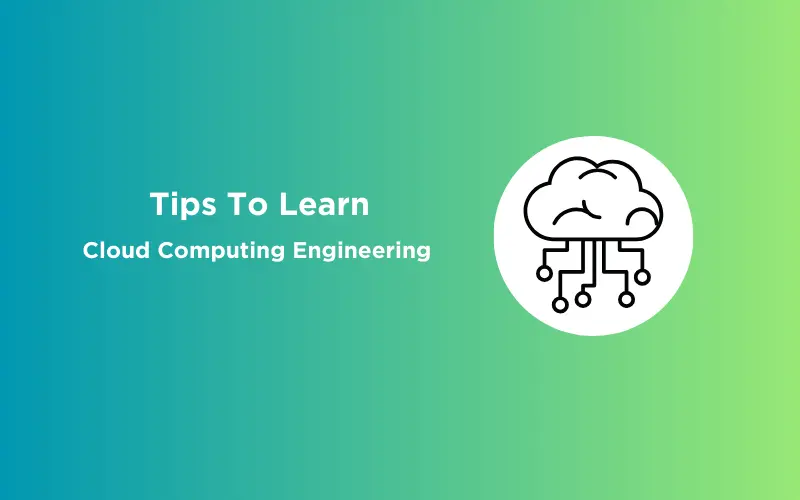
7 Tips To Learn Cloud Computing Engineering in the Best Possible Way
Mar 24, 2025 7 Min Read 4796 Views
(Last Updated)
Are you intrigued by the limitless possibilities of cloud computing? Does your interest lie in cloud computing but you don’t know how to or where to start? Don’t worry, that’s where this article “The best way to learn cloud computing engineering” comes in.
At first glance, learning cloud computing engineering may seem a bit tedious task but trust me, with the right guidance and the right path, cloud computing can be fun.
Join us on this journey as we explore the most effective ways to learn cloud computing engineering and how it can help you get a better hold of the subject. So, without further ado, let’s get started.
Table of contents
- What is Cloud Computing?
- The Best Way to Learn Cloud Computing Engineering
- Understanding the Basics
- Choosing the Cloud Provider
- Learning through Online Courses and Tutorials
- Hands-on Practice
- Certifications
- Join Online Communities
- Build Projects
- Conclusion
- FAQ
- Do I need a technical background to learn cloud computing engineering?
- What are the major cloud providers, and how do I choose one to focus on?
- Are there any non-technical skills that are important for cloud computing engineering?
- How do I stay updated with the latest developments in cloud computing?
- What are some common challenges when we learn cloud computing engineering?
What is Cloud Computing?

Cloud computing is like renting a super-powered computer or storage space on the internet instead of buying and maintaining your own. Imagine you need a computer to store your photos, run software, or host a website. Instead of purchasing a physical computer, you can use a cloud service.
It’s like paying for a virtual computer that exists in a data center far away. You access and control it through the internet. This virtual computer can be as small as a single file or as vast as a massive data center full of powerful machines.
Cloud computing allows you to use these resources as you need them, and you only pay for what you use, just like paying for water or electricity based on your usage. It’s convenient, cost-effective, and flexible.
Cloud computing offers various services, such as storing data, running applications, and analyzing large amounts of information. You can use it for personal tasks like storing your photos online or for business purposes, like running a website or handling customer data securely.
The cloud is like a giant toolbox of digital resources, and you can choose the right tools for your needs. It has transformed the way we use technology because it’s accessible from anywhere with an internet connection, and you don’t need to worry about the technical nitty-gritty of managing physical servers.
In simple terms, cloud computing is like having a powerful, virtual computer at your fingertips, available whenever and wherever you need it.
Before we move to the next part, you should have a deeper knowledge of cloud computing concepts. You can consider enrolling yourself in GUVI’s Cloud Computing Course, which lets you gain practical experience by developing real-world projects and covers technologies including Azure Command-Line Interface (CLI), Azure Monitor, Azure Resource Manager (ARM) Templates, and tools like Visual Studio Code, among many others.
Additionally, if you want to explore Azure through a Self Paced course, try GUVI’s Azure certification course.
The Best Way to Learn Cloud Computing Engineering
To learn cloud computing engineering is to gain knowledge and skills related to cloud platforms and services. It’s a dynamic field with a wide range of topics, so it’s important to have a structured approach to your learning.
Here’s a step-by-step guide on the best way to learn cloud computing engineering:
1. Understanding the Basics
The first and most important step of learning cloud computing engineering is to understand the basics and foundations. Foundations are important for any building to be strong and that applies in the field of academics. So, we have to start off first with the basics to learn cloud computing engineering.
We understood what cloud computing is in the previous section, but now let us understand the basics to learn cloud computing engineering.
Here are a few key points that can help you remember the basics that are important for learning cloud computing engineering:
Accessibility: The cloud allows you to access your stuff (like files, apps, and websites) from anywhere with an internet connection. It’s like having your data and programs on-demand, like streaming a movie online.
Scalability: Cloud resources can be easily adjusted. If you need more computing power or storage space, you can get it instantly without buying and setting up new hardware.
Cost-Efficiency: Instead of buying and maintaining your own servers and data centers, you can rent resources from cloud providers. This can be more cost-effective because you only pay for what you use.
Reliability: Cloud providers often have multiple backup systems and data centers, making your data and applications more reliable and less likely to be lost due to hardware failures.
These are the important points of cloud computing engineering that everyone must know as understanding the basics is the best way to learn cloud computing engineering.
2. Choosing the Cloud Provider
Cloud providers refer to big companies like Amazon, Microsoft, and Google. They have giant digital spaces on the internet where you can store and manage computer programs, data, and services. These spaces are known as cloud platforms.
When you’re about to learn cloud computing engineering, you have to decide which of these companies’ cloud platforms you want to focus on. It’s a bit like choosing a specific set of tools for your job:
Amazon Web Services (AWS):
Amazon Web Services (AWS) is a leading cloud computing platform offered by Amazon, providing a vast array of on-demand computing resources and services over the internet.
AWS enables businesses and individuals to store data, run applications, and access a wide range of powerful tools and infrastructure without the need for significant upfront investments in physical hardware.
With global data centers, extensive scalability, and a comprehensive suite of services for computing, storage, machine learning, and more, AWS plays a crucial role in powering modern digital innovation and business operations across the globe.
Microsoft Azure:
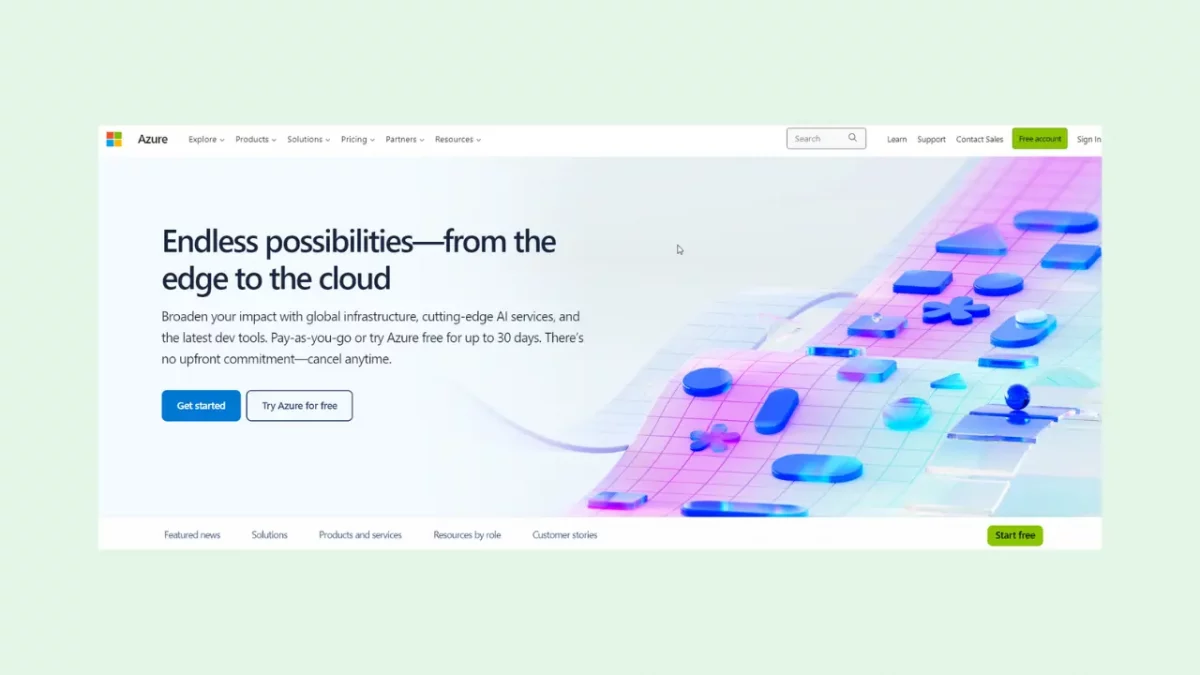
Azure, created by Microsoft, is a prominent cloud computing platform that delivers a comprehensive set of services for building, deploying, and managing applications and services through Microsoft-managed data centers worldwide.
Azure offers a wide range of solutions, including virtual machines, databases, AI and machine learning tools, and Internet of Things (IoT) services.
It empowers organizations to create, scale, and manage applications seamlessly, providing robust support for hybrid cloud scenarios and integration with Microsoft’s software ecosystem, making it a popular choice for businesses and developers seeking flexible and integrated cloud solutions.
Google Cloud Platform (GCP):
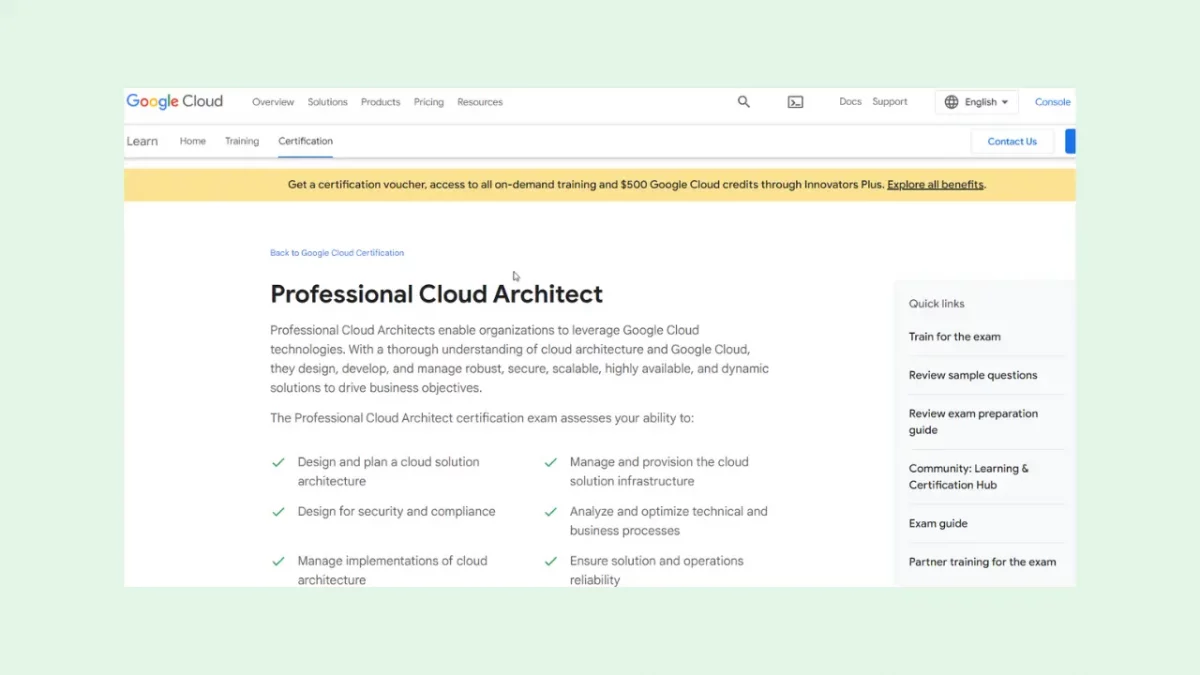
Google Cloud, provided by Google, is a well-known cloud computing platform renowned for its data analytics, machine learning, and AI capabilities.
Leveraging Google’s extensive global network infrastructure, it offers a wide array of cloud services, including computing power, data storage, databases, and machine learning tools.
Why is this choice important to learn cloud computing engineering?
Each provider has its own way of doing things, and their services can differ. So, by choosing one, you’re essentially learning how to use their tools and services effectively.
It’s like specializing in a particular brand or set of tools, which can be valuable if you want to work in cloud computing because companies often look for professionals with expertise in a specific cloud platform.
Additionally, each provider offers certifications. Think of these as official badges that show you’re skilled in using their tools. Earning these certifications can boost your career prospects.
This is an important step to learn cloud computing engineering to the fullest as the cloud is mainly dependent on the providers and learning any one of them is crucial.
3. Learning through Online Courses and Tutorials

Imagine you’re embarking on a journey to learn cloud computing engineering, you went through the basics and cloud providers but is it enough?
Of course not. So, where to start? Online courses and tutorials are like friendly guides who show you the way. You don’t need to go to a physical school; instead, you can use your computer or smartphone to access these courses from the comfort of your home.
These courses are designed by industry experts who want to make your journey to learn cloud computing engineering easy and fun.
They break down complex topics into bite-sized lessons, just like you’d break a big sandwich into smaller, manageable bites. You’ll watch videos where instructors explain things in a friendly and understandable way. And to make sure you’re really understanding everything, they might ask you questions or give you little quizzes along the way.
So, these online courses and tutorials will eventually become your guide that helps you walk through the journey seamlessly, helping you become a skilled cloud engineer.
4. Hands-on Practice
Let’s say that you’re trying to learn swimming. You could read any number of books about swimming techniques and watch videos of swimmers in action, but will that make you a good swimmer?
To truly become a good swimmer, you need to get into the water and start moving your arms and legs. You might splash around, make mistakes, and maybe even swallow some water, but with practice, you gradually become more skilled and confident.
Similarly, hands-on practice in cloud computing means actively using cloud platforms like AWS, Azure, or Google Cloud. Instead of just studying theories and concepts, you dive into these platforms. You create virtual machines, store data, and build applications.
At first, you might make errors or feel overwhelmed, but that’s part of the learning process. Over time, your confidence grows, and you become proficient in setting up cloud resources, just like you become a skilled swimmer through practice.
Hands-on experience is essential because it helps you understand how to apply what you’ve learned in real-world scenarios, making you more effective in cloud computing engineering.
5. Certifications

Certifications are an important part of cloud computing engineer which requires time and hard work. Certifications from top companies like AWS are important to get recognition,
Certifications are a bit like getting a driver’s license or a diploma after completing a driving course or finishing school. Here’s how certifications are important and why they matter:
Structured Learning:
Certifications provide a structured path for learning. Just like a school curriculum with specific subjects and lessons, certification programs guide you through a well-organized set of cloud computing topics. It’s like following a clear roadmap to expertise.
Validation of Skills:
No matter how skilled you are, unless you show it out, people won’t consider it to be true. Certifications are a way to show people that you have that skill, especially certification from a cloud provider like Microsoft Azure can help you land a job faster and easier.
Credibility:
Certifications add credibility to your resume and professional profile. They’re like trust badges that employers look for when hiring cloud engineers. Earning a certification tells them, “I know what I’m doing in the cloud computing world.”
Career Advancement:
Just like getting promoted at work when you gain more experience and skills, certifications can open doors to better job opportunities and higher salaries. Employers often pay more for people with certified expertise because they know they’re getting top talent.
Confidence:
Passing a certification exam can boost your self-confidence. It’s like crossing the finish line of a challenging race. You’ll know you’ve achieved a significant milestone in your cloud computing journey.
However, keep in mind that certifications require dedication and hard work. You’ll need to study, practice, and prepare for exams, which can be challenging. But the sense of accomplishment and the career benefits make it all worthwhile.
6. Join Online Communities
In your journey to learn cloud computing engineering, you may come across a lot of questions and since this happens mostly in the comfort of your home, you won’t find real-time people to answer your queries.
To help you with that, online communities are found everywhere on the internet. This saves you from drowning in questions and helps you get answers.
Joining online communities in cloud computing helps you in so many ways:
Fellow Learners and Experts:
Think of these communities as virtual gathering places where people who are passionate about cloud computing come together. You’ll find a mix of beginners, experienced professionals, and even cloud experts. It’s like a big, friendly gathering where everyone shares their knowledge and experiences.
Q&A and Discussions:
Just as you might ask your fellow classmates for tips on acing an exam, in these communities, you can ask questions, seek advice, and engage in discussions about cloud computing.
Sharing Knowledge:
Imagine you’ve discovered a cool new cloud technique. You’d likely want to share it with your fellow cloud enthusiasts but how will you do it? In these online communities, you can share your own cloud computing insights, tutorials, or even cool projects you’ve worked on. It’s a way to give back to the community and help others learn, just as others help you.
Networking:
Think of these communities as virtual concerts or jam sessions where you can meet and connect with people who share your interests. You might make friends, find mentors, or even stumble upon job opportunities through these connections.
Staying Informed:
Cloud computing is an ever-growing field the trends in cloud computing change constantly. In order to stay updated with the trends, online communities help you understand new technologies, best practices, and real-world experiences from your peers.
Support and Encouragement:
Learning a new skill can be challenging. Being part of a supportive community is like having a group of friends cheering you on, offering advice when you’re stuck, and celebrating your successes.
So, joining online communities is like being part of a global cloud “band.” You learn together, collaborate, and support one another as you navigate the world of cloud computing engineering. It’s a fantastic way to enhance your learning experience and build valuable connections in the field.
7. Build Projects
Think of building projects as your hands-on, creative playground in the world of cloud computing. It’s a bit like taking on DIY home improvement projects or crafting in your spare time. This is the best way to learn cloud computing engineering:
Real-World Application:
Building projects in cloud computing is like tackling home improvement tasks. Instead of just learning theory, you put your knowledge to practical use. It’s similar to fixing a leaky faucet or renovating a room in your house.
Problem-Solving:
Just as you might puzzle over how to design and decorate a room, cloud projects involve solving challenges. You’ll face scenarios like setting up a website, creating a cloud-based app, or optimizing data storage. It’s like figuring out how to make your home more functional and appealing.
Creativity and Innovation:
Imagine you’re redesigning your garden to make it more beautiful and functional. Cloud projects let you be creative and innovative. You can build unique solutions, experiment with different technologies, and come up with your own ideas, just like planning a garden makeover.
Practical Learning:
Cloud projects reinforce what you’ve learned in courses and tutorials. It’s like applying the cooking techniques you’ve learned in culinary school to create your own recipes. You’ll use cloud tools, troubleshoot issues, and gain practical insights that go beyond theory.
Portfolio Building:
Much like keeping a portfolio of your craft projects, cloud projects become your professional portfolio. You can showcase your completed projects to potential employers, clients, or collaborators. It’s like displaying your beautifully crafted furniture or home renovations to demonstrate your skills.
Personal Growth:
Just as DIY projects at home can be satisfying and fulfilling, cloud projects offer a sense of achievement and personal growth. You’ll see your skills improve, and the projects you build can be a source of pride, much like admiring your beautifully landscaped garden or newly designed room.
Remember, the key is to start with small, manageable projects and gradually take on more complex challenges as you gain confidence and expertise. Building projects in cloud computing is a hands-on, practical, and rewarding way to learn and grow in this exciting field.
Kickstart your career by enrolling in GUVI’s Cloud Computing Course with Microsoft Azure where you will master technologies like Matplotlib, Pandas, SQL, NLP, Deep Learning, and build interesting real-life cloud computing projects.
Alternatively, if you would like to explore Microsoft Azure through a Self-Paced course, try GUVI’s Azure certification course.
Conclusion
In conclusion, embarking on the journey to learn cloud computing engineering can be both exciting and rewarding. With a systematic approach and a dedication to continuous learning, you can master the essential skills needed to become a proficient cloud engineer.
Remember, the best way to learn cloud computing engineering is not merely through theory, but through practical application and a passion for exploring all the hidden details of cloud. So, embrace the challenges, stay curious, and be open to exploring the ever-evolving landscape of cloud computing engineering.
FAQ
While a technical background can be helpful, it’s not mandatory. Cloud computing resources and courses are designed to cater to learners with varying levels of technical expertise.
Major cloud providers include AWS, Azure, and Google Cloud. To choose one, consider your career goals, the services they offer, and your familiarity with their ecosystem. Each provider has its strengths, so it depends on your specific needs.
Yes, soft skills like problem-solving, communication, and teamwork are essential in cloud computing engineering, as you often work with diverse teams to solve complex issues.
Stay updated by following cloud-related blogs, attending webinars, and participating in online cloud communities and forums.
Common challenges include understanding complex concepts, keeping up with rapid changes in technology, and managing the cost of cloud services.

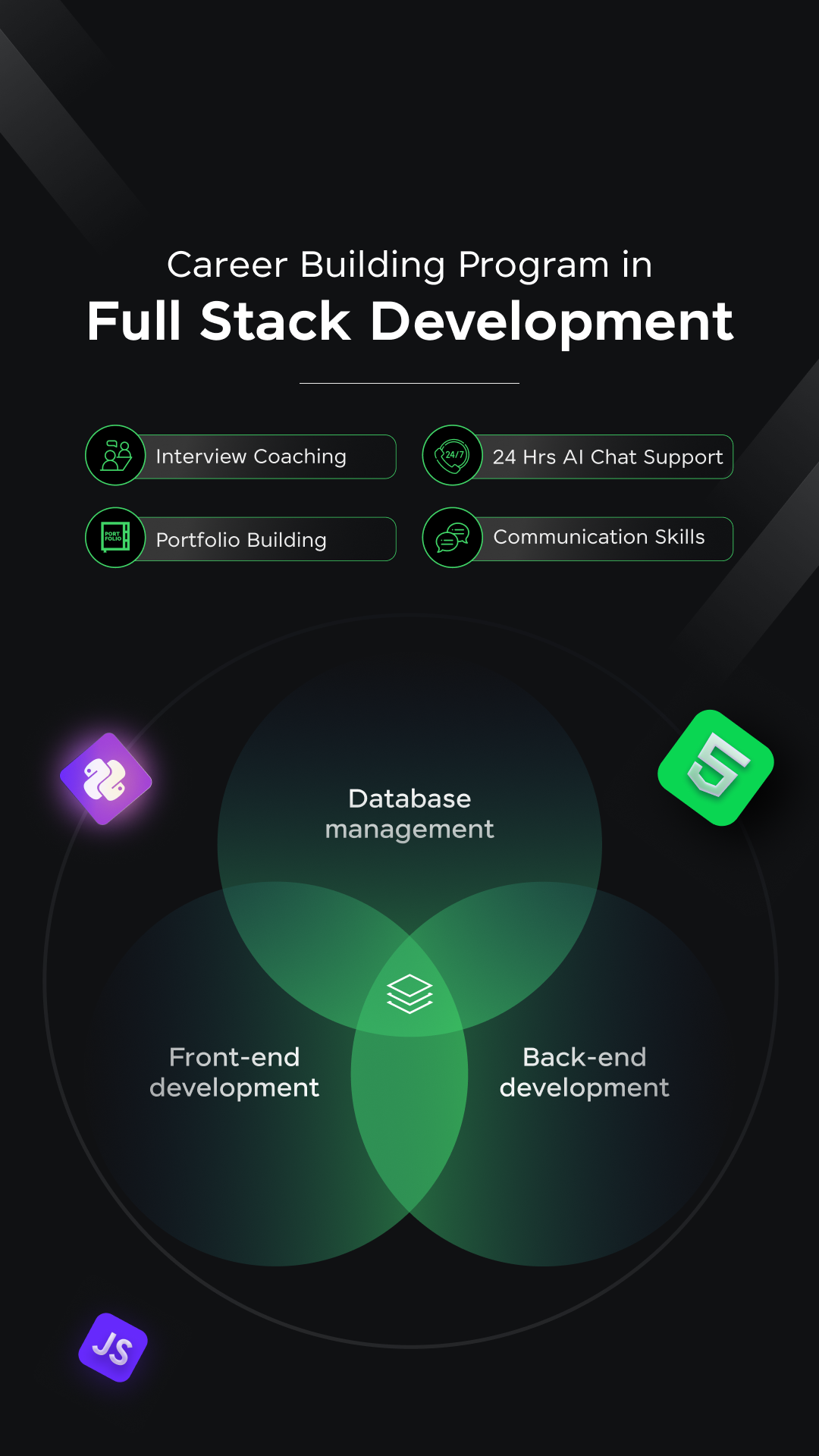

















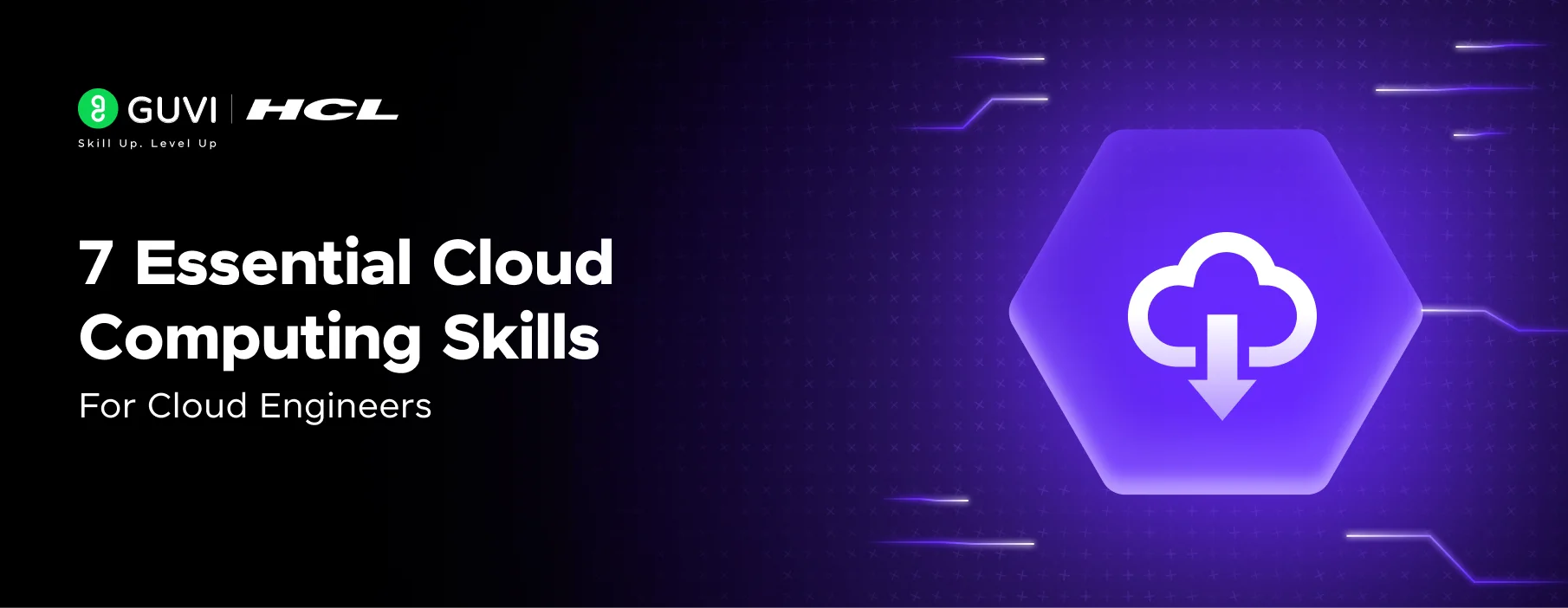
![Top 30 Networking Interview Questions and Answers [Includes All 3 Levels] 9 Networking Interview Questions and Answers](https://www.guvi.in/blog/wp-content/uploads/2025/05/30-Crucial-Networking.webp)
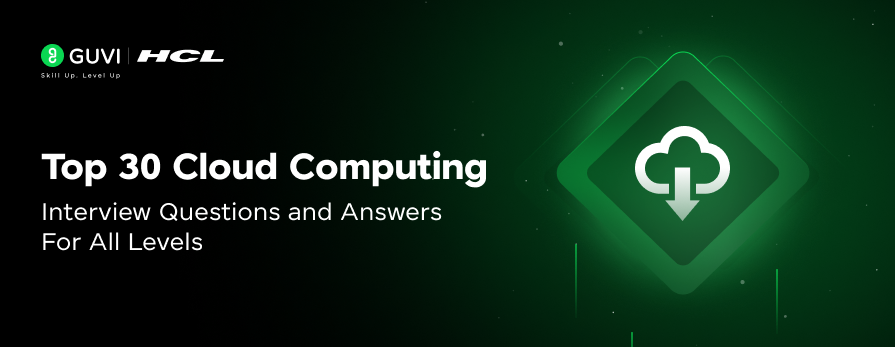

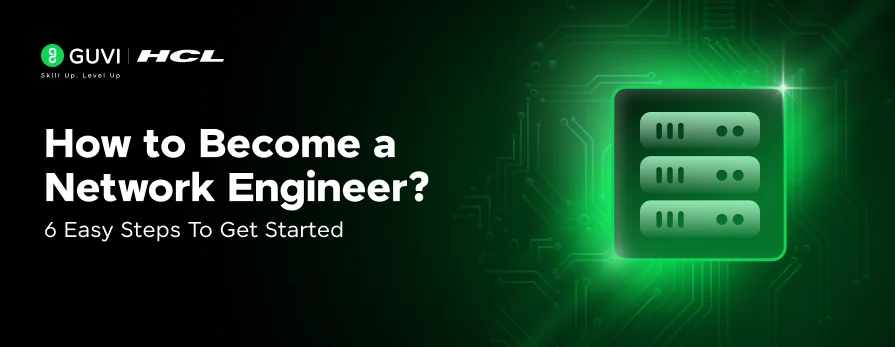
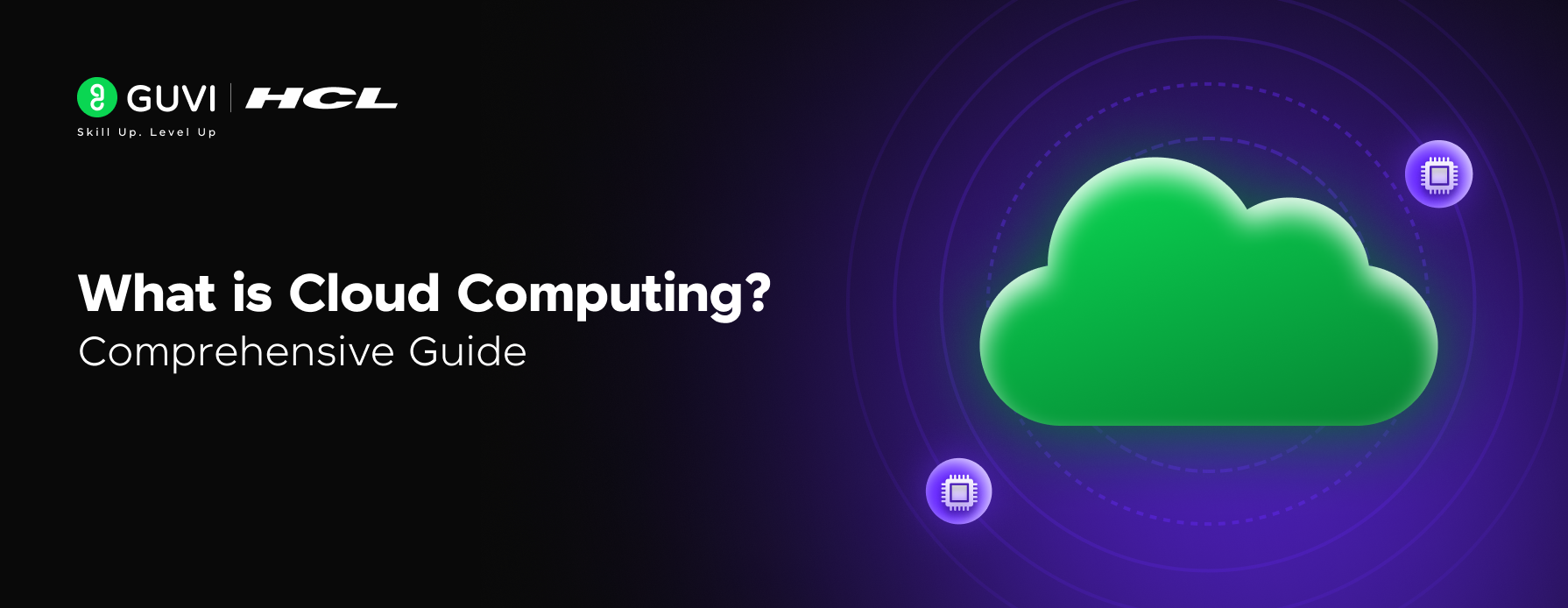
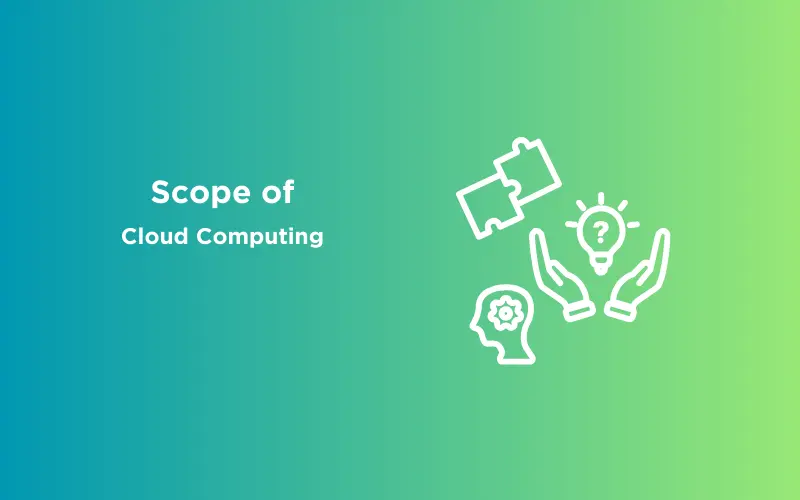
![10 Best AWS Cloud Computing Courses [Free+Paid] 15 AWS Cloud Computing Courses](https://www.guvi.in/blog/wp-content/uploads/2025/07/AWS-Cloud-Computing-Courses.webp)

Did you enjoy this article?